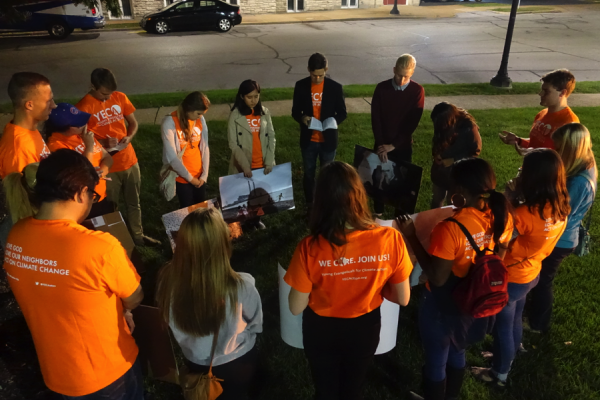Oct 10, 2016
Grist’s Emma Merchant recently crunched the numbers on how frequently climate change has been discussed in the debates of the past five presidential election cycles (2000, 2004, 2008, 2012, and 2016).
She found that, out of 1,500 minutes of presidential and vice-presidential debate, climate change got a paltry 37 minutes of discussion. In 2012, of course, climate change got a whopping zero minutes of debate time.
Read the Full Article

Already a subscriber? Login
